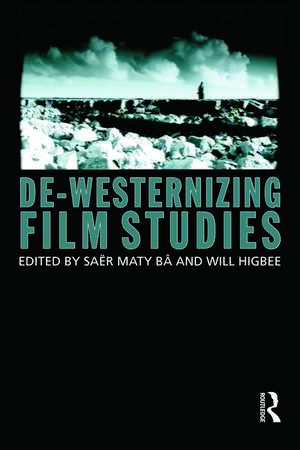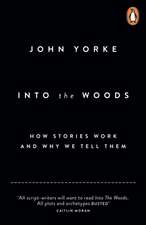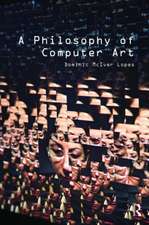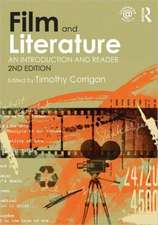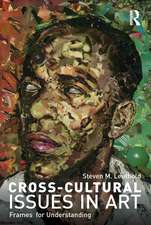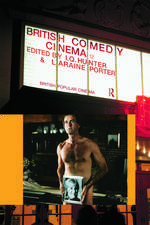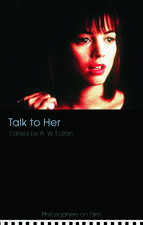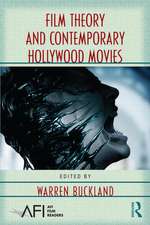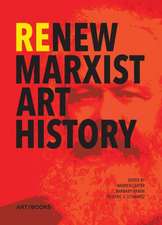De-Westernizing Film Studies
Editat de Saer Maty Ba, Will Higbeeen Limba Engleză Paperback – 28 iun 2012
The book combines a series of chapters considering a range of responses to the idea of 'de-westernizing' film studies with a series of in-depth interviews with filmmakers, scholars and critics.
Contributors: Nathan Abrams, John Akomfrah, Saër Maty Bâ, Mohammed Bakrim, Olivier Barlet, Yifen Beus, Farida Benlyazid, Kuljit Bhamra, William Brown, Campbell, Jonnie Clementi-Smith, Shahab Esfandiary, Coco Fusco, Patti Gaal-Holmes, Edward George, Will Higbee, Katharina Lindner, Daniel Lindvall, Teddy E. Mattera, Sheila Petty, Anna Piva, Deborah Shaw, Rod Stoneman, Kate E. Taylor-Jones
| Toate formatele și edițiile | Preț | Express |
|---|---|---|
| Paperback (1) | 356.18 lei 6-8 săpt. | |
| Taylor & Francis – 28 iun 2012 | 356.18 lei 6-8 săpt. | |
| Hardback (1) | 768.82 lei 6-8 săpt. | |
| Taylor & Francis – 28 iun 2012 | 768.82 lei 6-8 săpt. |
Preț: 356.18 lei
Nou
Puncte Express: 534
Preț estimativ în valută:
68.16€ • 72.88$ • 56.83£
68.16€ • 72.88$ • 56.83£
Carte tipărită la comandă
Livrare economică 18 aprilie-02 mai
Preluare comenzi: 021 569.72.76
Specificații
ISBN-13: 9780415687843
ISBN-10: 0415687845
Pagini: 296
Ilustrații: 20 b/w images
Dimensiuni: 156 x 234 x 18 mm
Greutate: 0.45 kg
Ediția:New.
Editura: Taylor & Francis
Colecția Routledge
Locul publicării:Oxford, United Kingdom
ISBN-10: 0415687845
Pagini: 296
Ilustrații: 20 b/w images
Dimensiuni: 156 x 234 x 18 mm
Greutate: 0.45 kg
Ediția:New.
Editura: Taylor & Francis
Colecția Routledge
Locul publicării:Oxford, United Kingdom
Public țintă
Postgraduate and UndergraduateCuprins
Foreword: Graeme Harper Introduction: De-Westernizing Film Studies Part 1: (Dis-)continuities of the Cinematic Imaginary: (Non-)Representation, Discourse and Theory Chapter 1: Imagi[ni]ng the Universe: Cosmos, Otherness and Cinema Chapter 2: Questioning Discourses of diaspora: "Black" Cinema as Symptom Chapter 3: Affective Passions: The Dancing Female Body and Colonial Rupture in Zouzou (1934) and Karmen Geï (2001) Chapter 4: African Frameworks of Analysis for African Film Studies Part 2: Narrating the (Trans)Nation, Region and Community from Non-Western Perspectives Chapter 5: De-westernizing national cinema: re-imagined communities in the films of Férid Boughedir Chapter 6: Banal Transnationalism: On Makhmalbaf’s "Borderless" Filmmaking Chapter 7: Griots and Talanoa Speak: Storytelling as Theoretical Frames in African and Pacific Island Cinemas Chapter 8: The Intra-East Cinema: the re-framing of an East Asian Film Sphere Part 3: New (dis-)continuities from ‘within’ the West Chapter 9: "A double set of glasses": Stanley Kubrick and the Midrashic Mode of Interpretation Chapter 10: Situated Bodies, Cinematic Orientations: Film and (Queer) Phenomenology Chapter 11 Has film ever been Western? Continuity and the question of building a "common" cinema Part 4: interviews Editors’ note on interviews Chapter 12: "There is No Entirely Non-Western Place Left ": De-Westernizing the moving image, an interview with Coco Fusco Chapter 13: De-Westernizing Film through Experimental Practice: an interview with Patti Gaal-Holmes Chapter 14: "With Our Own Pen and Papers": an interview with Teddy E. Mattera Chapter 15: "To Colonize a Subject Matter is to Learn Nothing from it": an interview with Jonnie Clementi-Smith Chapter 16: "Isn’t It Strange that ‘World’ means Everything Outside the West?": an interview with Rod Stoneman Chapter 17: Beyond Stereotypes and Preconceptions: an interview with Farida Benlyazid Chapter 18: "About Structure, Not about Individual Instances": an interview with Daniel Lindvall Chapter 19: "Still Waiting for a Reciprocal De-Westernization": an interview with Mohammed Bakrim Chapter 20: "Moving Away from a Sense of Cultures as Pure Spaces ": an interview with Deborah Shaw Chapter 21: Nu Third Queer Cinema: an interview with Campbell X Chapter 22: "To Start with a Blank Slate of Free Choices": an interview with Kuljit Bhamra Chapter 23: "The Crazy Dream of living without the Other": an interview with Olivier Barlet Chapter 24: "De-Westernizing as Double Move": an interview with John Akomfrah
Recenzii
'Highly Recommended. Documenting the continuing struggle between Western ideological dominance and alternative international filmmaking, Bâ and Higbee collect the work of a wide range of critical theorists, filmmakers, and scholars, who document the need for an alternative to conventional cinema history--a history that marginalizes much of the world's population, and the films produced outside the US and western Europe. Featuring some of the leading voices of transnational cinema, including Daniel Lindvall, Olivier Barlet, Coco Fusco, Kuljit Bhamra, Mohammed Bakrim, and many others, this collection effectively delineates the stranglehold of the Hollywood cinema on the West's collective consciousness.' –CHOICE, W. W. Dixon, University of Nebraska-Lincoln
Descriere
This edited collection brings together international scholars and filmmakers with research expertise across a range of non-Western film cultures, but who have one shared aim: to challenge and offer alternatives to Eurocentric theoretical, historical perspectives in film studies.
